The State of Kuwait Graduate Award in Islamic Studies
Warm Congratulations to the Recipient of the State of Kuwait Islamic Studies Graduate Award in 2025
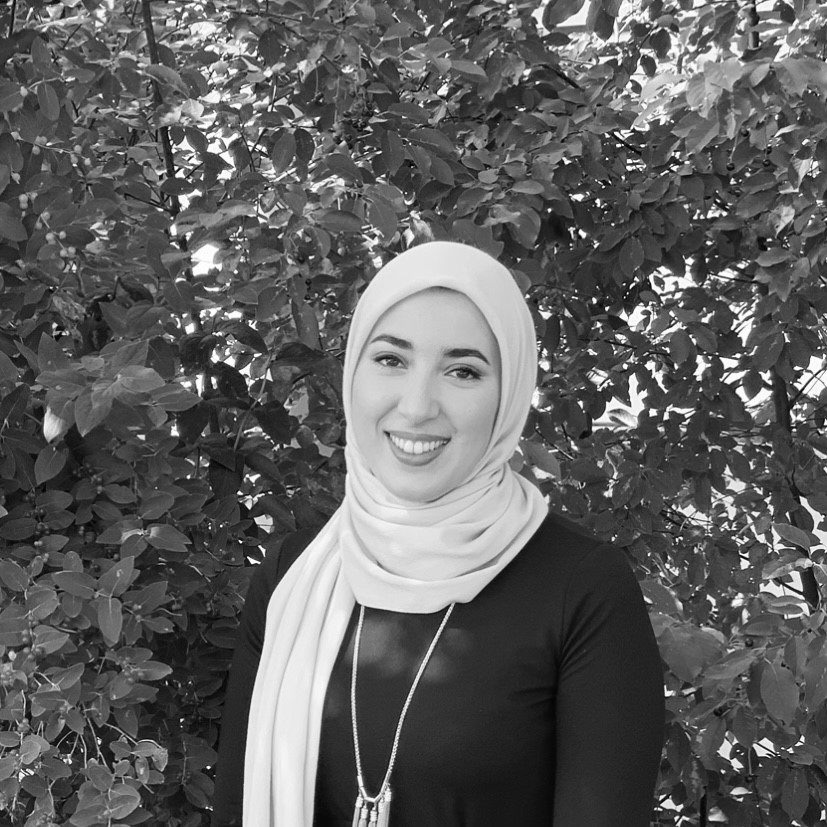
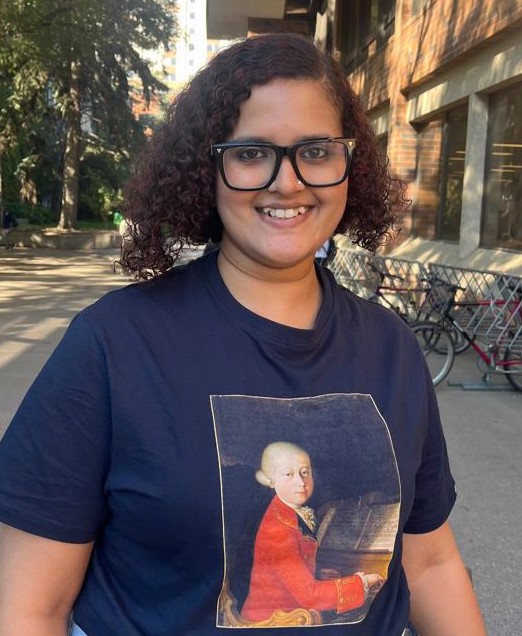

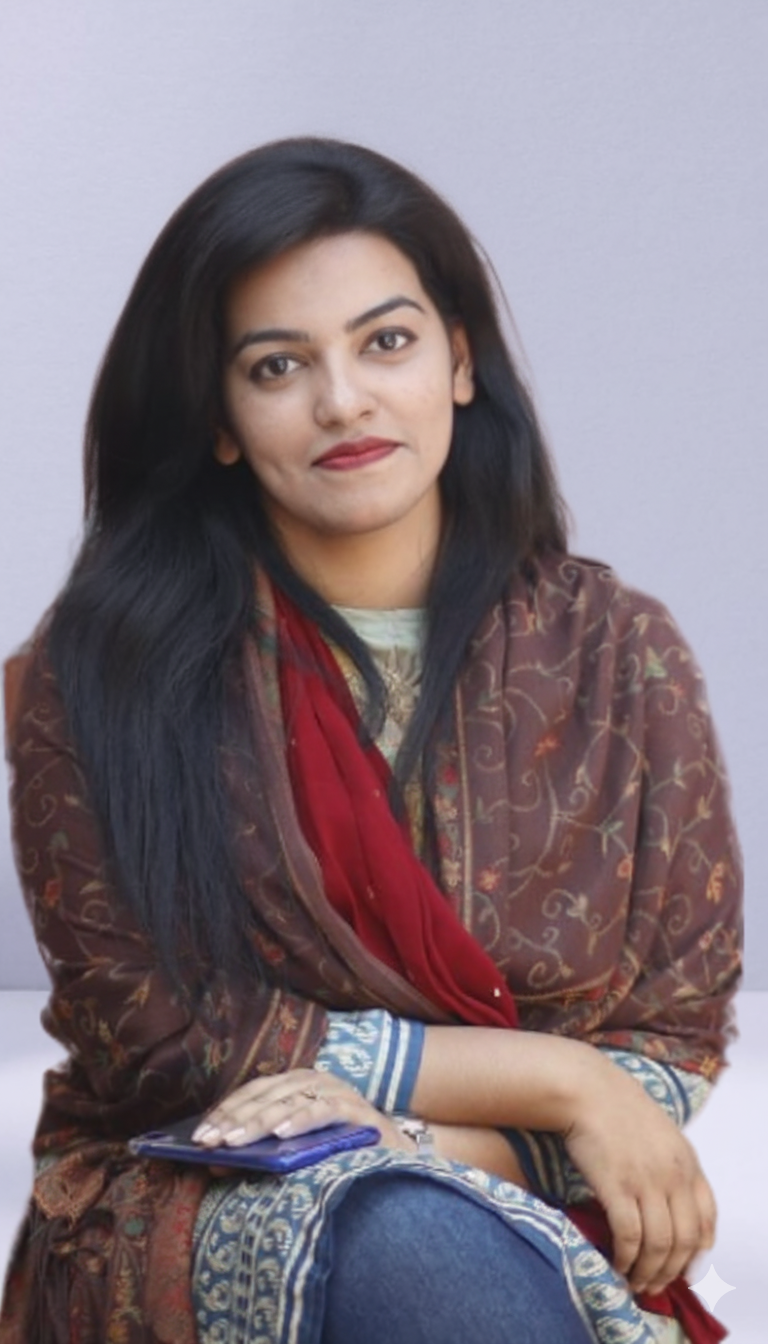
Warm Congratulations to the Recipient of the State of Kuwait Islamic Studies Graduate Award in 2024



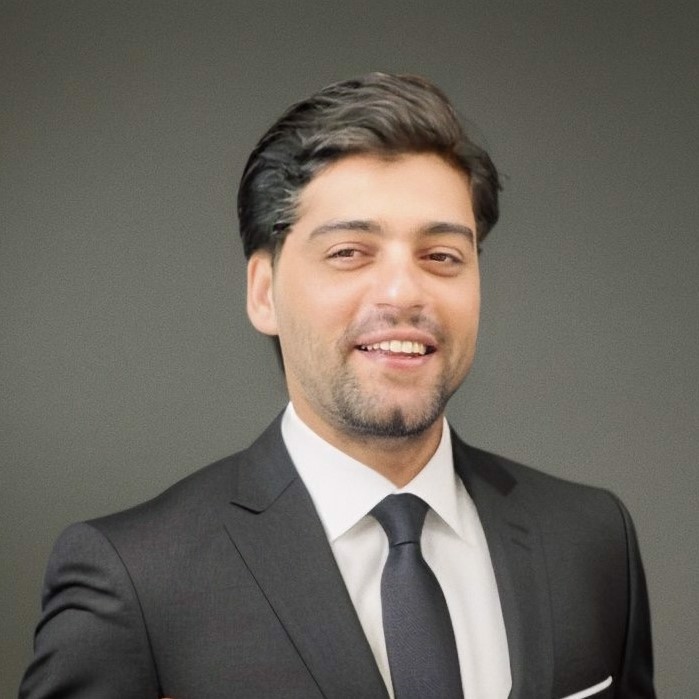
Warm Congratulations to the Recipient of the State of Kuwait Islamic Studies Graduate Award in 2023
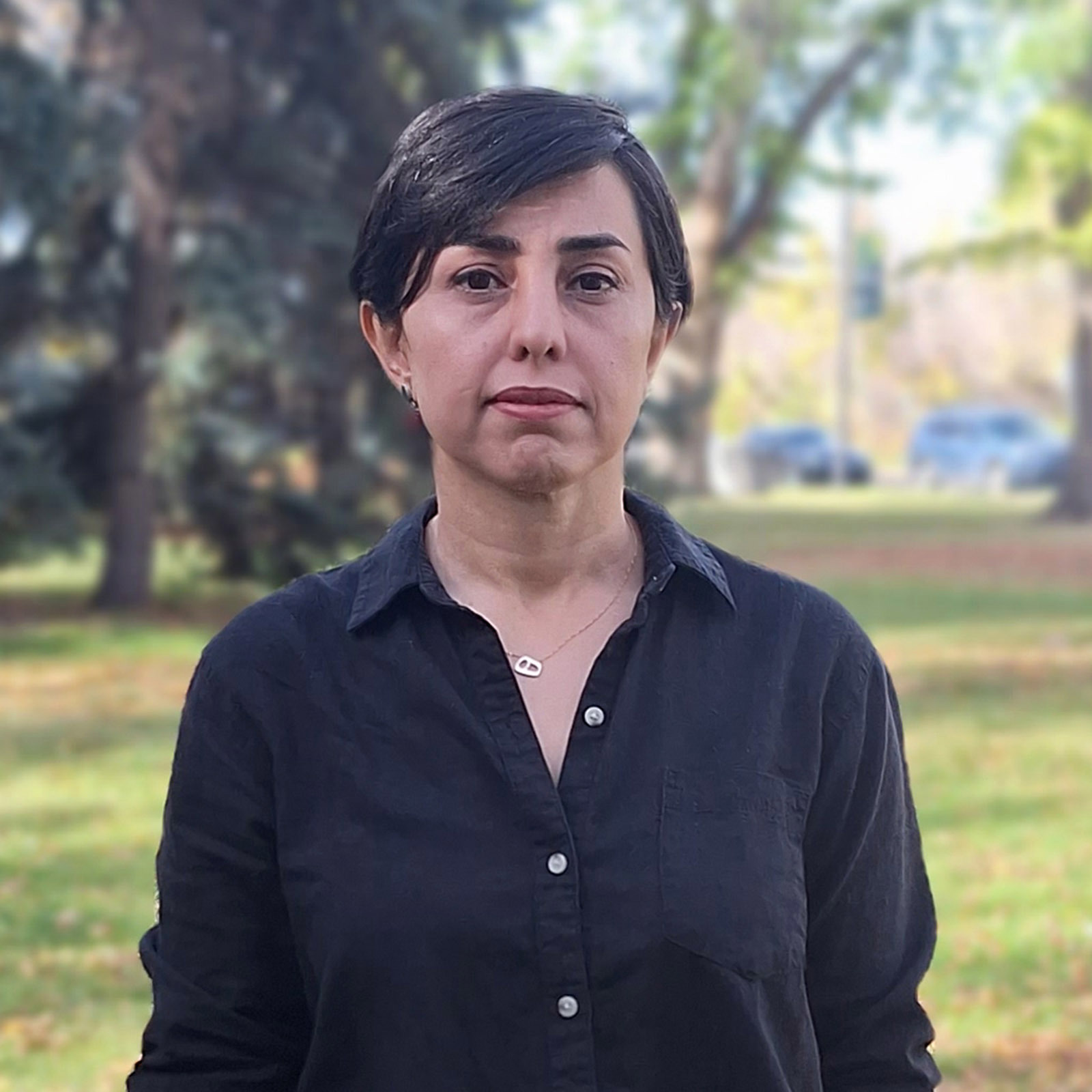
Hajar Ghorbani
PhD student and Killam scholar, Department of Anthropology
Thesis topic: Dead Bodies’ Agency and Western Politics
My research centers on the intersections of death and modernity, as well as death and politics in Iran and the Middle East. In my PhD thesis I am advancing the conventional perspectives in social sciences that assume the living govern the dead. My work explores the agency of dead bodies that affect the experience and actions of mourners and evoke memories of the past rather than serve their socio-political ends.
Nazli Gul Deniz Claeys
PhD student, Political Science
Thesis topic: Women and gender issue in Muslim contexts with a specific focus on the discourse of Islamic/Muslim Feminisms in Turkey, Iran and Lebanon
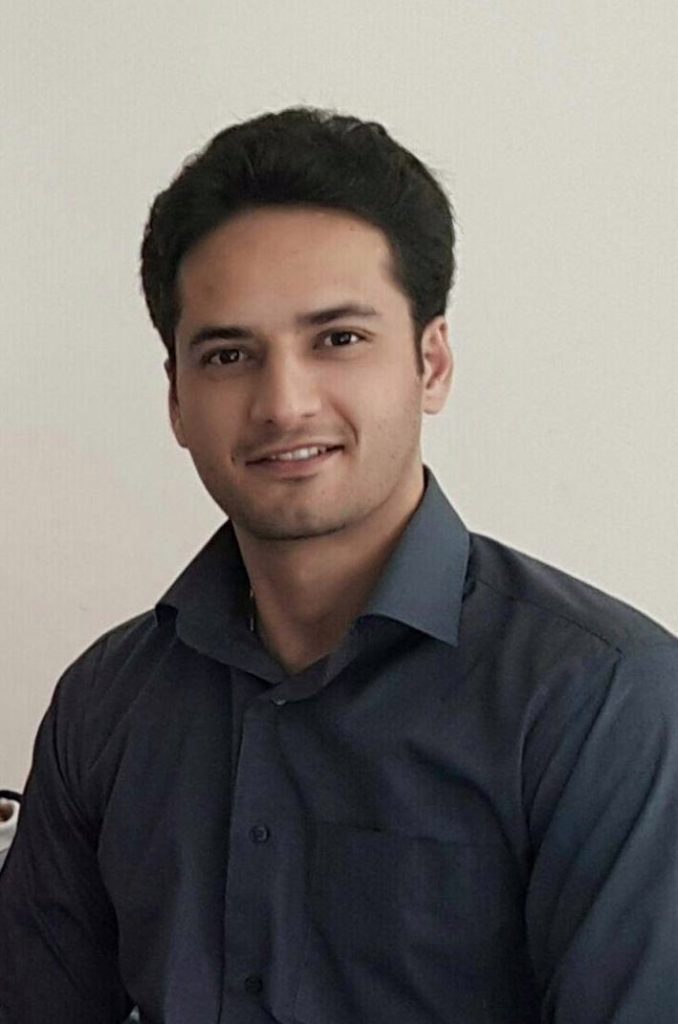
Saman Rezaei
PhD student, Modern Languages and Cultural Studies
Thesis topic: His thesis examines the idea of a leading Muslim mystic, Suhrawardi, and his theory of intuitive ontology through narrative structures and symbols, and the influence of this ontology on the transformation of the substance of symbols.

Laya Soleymanzadeh
MA student, Modern Languages and Cultural Studies
Thesis topic: Her project, titled “Narrative and Metanarrative Hospitality in Marjane Satrapi’s Persepolis,” challenges reductionist Orientalist and/or Occidentalist narratives. It examines how such representations may homogenize the heterogeneities and diversities in Muslim majority contexts.

Md Nazmul Arefin
PhD candidate, Department of Sociology
Thesis topic: Islamophobia in Canada: Exploring the lived experiences of Muslim university students.
My study investigates the racial and ethnic relations experienced by Muslim students in connection to the pressing issue of Islamophobia. It explores the lived experiences of Muslim students at the U of A, to explore their academic freedom, ethnic relations, identity struggles, and responses to anti-Muslim hatred and discrimination. It also aims to give participating students a ‘voice’ by soliciting their policy recommendations to foster inclusivity and social justice.
The Recipients of the State of Kuwait Islamic Studies Graduate Award in 2022

Behrang Nikaeen
Ph.D. candidate, Department of Music
Thesis topic: His project compares the music and popular cultures of Azerbaijani-speaking regions of Iran and Republic of Azerbaijan – both are Muslim communities.
My PhD project aims to comparatively study the formation and representation of the plurality of Azerbaijani cultural identities–sprung out of mutual interactions with Persian, Russian, Soviet cultures and Islamist and anti-religious currents– through examining Azerbaijani popular music genres in the Azerbaijan transnational cultural area, spanning the Azeri-speaking regions of Iran and Republic of Azerbaijan. Using ethnographic fieldwork in the region, I will examine the musical construction of the post-Soviet Azerbaijani national identity and, at the same time, the formation of transnational networks shaped by the circulation of music and musical ideas between the two countries after the fall of the USSR.

Hande Gür
Ph.D. Candidate, Department of Anthropology
Thesis topic: Her dissertation is an ethnographic study of the rise of Sufi mystical practices among young, middle-class women of Turkish origin living both in Turkey and in the West.
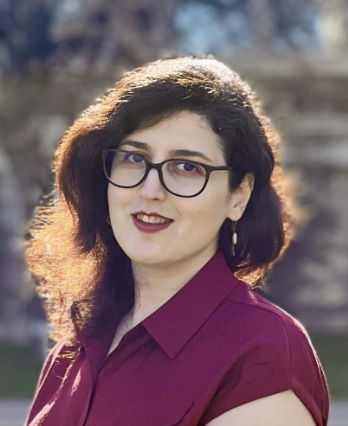
 Reyhaneh Javadi
Reyhaneh Javadi
Ph.D. Candidate, Department of Sociology
Thesis topic: She examines Iranian women’s struggle for rights in a Muslim country as a social non-movement.
Overcoming sociolegal injustice and gender discrimination is often perceived to be an organized collective action, led by progressive policymakers, rights activists, or international interventions. The research I propose challenges these often ideologically-articulated narratives of rights, by focusing on the everyday struggles of women who continue to push the boundaries of the gendered policies of the state. I ask whether and how individual attempts by women justice professionals as well as ordinary citizens to reclaim their rights have resulted in broader structural changes in laws and legal procedures.
.png)
 Nazia Mahmud
Nazia Mahmud
MA student, Department of Anthropology
Thesis topic: Looking at how gender and class shape women’s religious experience in Bangladesh, she examines how women’s religious lives are affected by socioeconomic changes and Islamic reformism.
My research is based on shrine veneration in Bangladesh. Decorated shrines or resting places of Islamic Sufi saints and scholars who helped introduce and spread Islam throughout Bengal are considered holy to this day. People venerate their shrines by praying and giving offerings and donations in their names and observing special rituals. Shrine veneration has long been a prominent part of Bangladeshi culture, however, for many years now it has come under scrutiny and labeled something that is not ‘Islamic’ by the rising Islamic reformist groups and their followers. The way shrines are being venerated now has also changed as well. I explore if—or how, or to what extent— rising religious reformist movements in Bangladesh are affecting the faith of believers who continue to venerate shrines. How do they negotiate the faith they grew up with and the faith that has been on the rise, and do these changes affect their embodiment of Islam? Mystical practices are being transformed, and not simply eclipsed or outdated, by modern processes and thought, and the coexistence of these diverging approaches to religion is part and parcel of the complex nature of modernity. The study shows how Islamic reform movements have changed the terms of discussion around Islam in their quest to universalize Islam by removing “local” elements, yet the process of “modernizing” and de-localizing Islam is not complete, and local practices continue.
Warm Congratulations to the Recipient of the State of Kuwait Islamic Studies Graduate Award in 2021
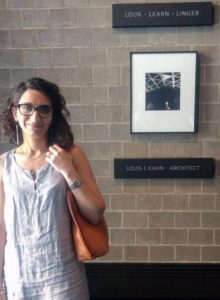
Banafsheh Mohammadi
PhD Graduated, History of Arts
Thesis Topic: Images of the Experiential: Petroleum Roots of Architectural Phenomenology and the Phenomenology of Religion, 1945-1967
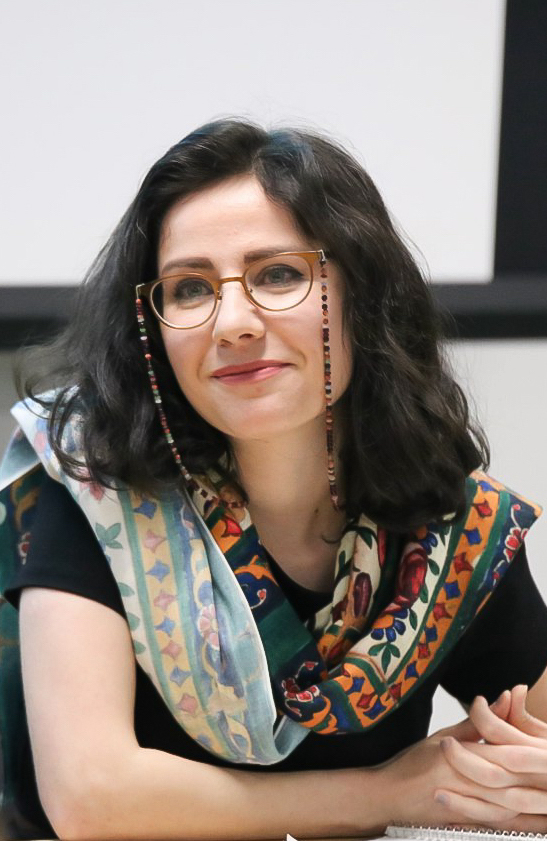
Samira Torabi
PhD Candidate, Anthropology
Thesis Topic: Piously Naughty: Iranian Muslim Women Reimagining Sexuality in Cyberspace
I propose to carry out ethnographic research to examine how explicit sexual expression overlaps with a notion of piety. Most studies examining the impact of online social networks on transforming religious communities and intimate relationships have treated these two as separate or and even antithetical. I intend to challenge the dichotomies of modern discourse by examining the mutually transformative intersection of Islamic piety and public sexuality. I approach piety not as a static norm to be conformed to or avoided, but as something that people perform, rework, and reconfigure to present new phenomena in line with tradition despite apparent deviations.
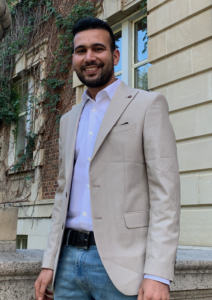
 Anas Fassih
Anas Fassih
PhD Student, Political Science
As part of his doctoral dissertation on climate diplomacy in Morocco, Anas Fassih critically examines the impact of solar installations on the sovereignty of communities in the desert town of Quarzazate and Midelt, Morocco. In his research he draws on ethnography with communities in the southern provinces of Morocco to explore the complexity of energy-sovereignty nexus and its impact on conflict in the North African country. Specifically, he asks the question, to what extent are Morocco’s international commitments to mitigate the impact of climate change compatible with the hopes and aspirations of local communities? Anas’ research benefits from his intimate knowledge of Morocco and his use of Arabic, French and English

 Ahmed El-Damanhoury
Ahmed El-Damanhoury
MA Student, History and Classics
Thesis Topic: The forgotten founders of Egyptian football: Sports, Culture and Society (1890-1956)
Historians have viewed the spread and popularity of football in British colonies as a response to colonialism. Scholars studying the history of football in Egypt apply this narrative without problematizing it. My research will study the diffusion and popularization of football in Egypt as a complex, multi-layered process, in which European expatriates from Italian and Greek origins played a foundational role. I will bring visibility to the role of these expatriates in introducing football to Muslim Egyptian society. In so doing, the study will challenge a long-standing assumption about Egypt’s cultural and sporting history and contribute to discussions of the role of sport in British colonial historiography.
Warm Congratulations to the Recipient of the State of Kuwait Islamic Studies Graduate Award in 2020

| Sajad Soleymani Yazdi PhD Candidate, Modern Languages and Cultural Studies Thesis Title: Of Sand and Snow: The Eco-Witnessness of Canadian Settler Muslims and The Cree |
In the context of reconciliation, taking my cue from Cree philosopher Willie Ermine, I study the Cree and Canadian settler Muslims in an “ethical space,” where differences between the two cultures would inform one another. I follow the common thread that runs between their struggles to assert their self-determination, finding that their separate lands and spiritualities, central to their self-definitions, are best represented in a genre of literature they structurally share: witness literature. My objective is to seek what can be learnt about the global nature of environmental crises from a comparison between these two types of life stories. One end of my research concerns diasporic Muslims: I trace Ali Shariati’s concept of Shahada, or Muslim Witnessness, in Canadian settler Muslim memoirs. The other end of my research is the Cree: I take my standpoint from Deanna Reder’s idea that Cree autobiography is a theoretical practice. My task is to explore the ways in which this practical witnessness, parallel, not akin to, but indeed allied by Muslim Witnessness, envisions new decolonized Ecocentric orders, and functions as an Indigenous mode of living in nature and in resistance towards environmental violence.
Warm Congratulations to the Recipient of the State of Kuwait Islamic Studies Graduate Award in 2019
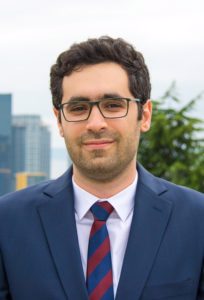
Ehsan Kashfi
PhD Student, Political Science
Thesis Topic: The Discursive and Institutional Construction of Shia Identity in Post-revolutionary Iran
My research is about the manifold state-sponsored attempts to imagine and reconstruct Shia identity in the post-revolutionary era, seeking to delineate the discursive processes and institutions through which Shi’ism is evoked and restored to articulate a hegemonic narrative of identity, securing political support and cementing legitimacy. It aims to chart the processes by which a set of Shia practices, of a great ritual and symbolic significance are deployed by the state to inculcate a particular politically-charged discourse. It argues that religious rituals and practices may not be merely an expression of emotions, of religious engagement but by means of organization and symbolic references, are directly linked to the political establishment, contributing to the authority and legitimacy of the state.
Warm Congratulations to the Recipients of the State of Kuwait Islamic Studies Graduate Award in 2018

Ali Mesbahian
MA student, Philosophy
Thesis Topic: Islam and Human Rights
—
My research focuses on questions regarding the relevance of the Universal Declaration of Human Rights to the religion of Islam. On the one hand, the universality of the Declaration has been criticized on the grounds that it unable s to incorporate Islamic values and instead ascribes a superficial equality to humans at the cost of disregarding their broader sociocultural and religious contexts of their existence. On the other hand, the notion of universality is vital insofar as it opposes appeals to cultural uniqueness made by autocratic regimes in order to justify their repressive behaviour. One prominent example of such an appeal is the objection to the Declaration’s acknowledgement of women’s right to divorce due to its alleged conflict with “Islamic” values. Central to my project is the examination of concrete cases of struggles for recognition in Islamic contexts and the way in which they, through a constructive critique, can provide us with a better understanding of universal rights.

Noureddin Zaamout
PhD Student, Political Science
Thesis Topic: A Genealogy of the Muslim Brotherhood in Syria.
—
My research will provide a historicization and conceptualization of the Harakat al-Ikhwan al-Muslimeen Fi Souriya, or the Syrian Muslim Brotherhood (SMB). While the SMB movement has played an important role in Syrian politics, both historical and contemporary, scholars have not paid sufficient attention to the study of the movement and its ideology. My research project is an attempt to trace the genealogy of the SMB; analyzing its history, development and ideological progression. This research will provide a conceptualization of the SMB, demonstrating that while it emanated out of a broader Muslim brotherhood tradition, it developed in its own unique way. The focus here is to shed light on the Syrian character of the MB, in order to show how the experience of exile played a role in shaping the movement’s ideological development
.jpg)
 Gabriel Ojakovo
Gabriel Ojakovo
PhD student, Music
Thesis Topic: The Use of Hausa Islamic Songs in the Fight against Boko Haram in Northern Nigeria.
—
My research examines the place of Hausa Islamic songs (nashīd) to counter the ideologies of the militant group, Boko Haram, and to promote peace in Northern Nigeria. Like other militant movements (al-Shabaab, al-Qaeda), Boko Haram uses religious songs and poetry (The Burning Hellfire, and Nashīd of the Defiant) in different languages such as Arabic and Hausa, to propagate their ideology. These songs are used as media of recruitment, to lure young men into the movement. As the menace of the group continues to gain ground, several Hausa speaking musicians from countries such as Nigeria where Boko Haram operates have also employed songs as countermeasures, to challenge and deconstruct the ideologies of the militant movement. In my research, I will investigate the context, history, and meaning of such songs and analyse the lyrics in the propagation of Boko Haram’s ideology, and to deconstruct it. Why and how have these songs been used? Do the anti-Boko Haram songs rely on the Sufi theme of love in the propagation of peace? Do anti-Boko Haram songs tackle the issues of kidnapping female school students and their recruitment into this extremist movement?

 Miraaj Yousif
Miraaj Yousif
MA student, Women’s and Gender Studies
Research Topic: Perennial Ambiguity: Unveiling Possible Justifications of Marital Rape through the (Mis)-Interpretation of Islam in Sudan.
—
In this work, I aim to unveil several complexities of interpretations concerning how Islam may or may not perpetuate (condone, or indeed even sanctify) marital rape in the Sudanese context. Ultimately, my goal is to offer an alternative of thinking to Sudanese women who have become conditioned to accept patriarchal interpretations of Islam. Muslim women living in predominantly Muslim countries do not have to see Quran as a source that promotes the oppression of women, but rather should examine the Quran, Hadith and Fiqh in an effort to unveil the truth behind popular discourses. I hope that in the same way the Quran has been misread as a text promoting men as figures of authority, women can examine the ambiguous and underlying meanings in those very same texts to find support for their bodily autonomy.—
Warm Congratulations to the Recipients of the State of Kuwait Islamic Studies Graduate Award in 2017
.jpg)
Nasim Ahmadian
PhD Student, Music
Title of Dissertation: The Sweetness of Sadness in Traditional Iranian Classical Music.
—
Traditional Iranian classical music is often admired as “deep” for the sadness and ecstasy it brings to performers as well as to appreciative listeners. The tendency of musicians to focus on ‘melancholic’ interpretations while performing is an important aspect of Iranian music that is integrated with religious life in Iran, where the cultural context of Shi‘i Islam, including sounds of Muharram, Ramadan, passion plays (ta‘zieh), and other rituals have, through the centuries, contributed to the aesthetics of Iranian music and the theme of tragedy in collective musical memory. Based on field study and critical reading, my research will investigate the ethnomusicological, psychological, and philosophical linkages between the meaning of beauty in Iranian classical music, and the cultural essence of Shi‘i Islam, considered within the broader social and historical background of Iran.
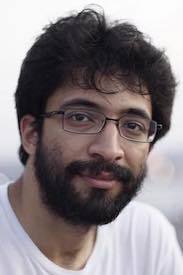
Emrah Keskin
PhD Candidate, Political Science
Title of Dissertation: Mental Health and Psychosocial Support Programs and Reconciliation: A Case Study in Bosnia and Herzegovina.
—
My research seeks to understand how efforts to address the trauma of war in Bosnia and Herzegovina influenced the reconciliation of the three constituent peoples of the country, Bosniac Muslims, Serbs and Croats. As civil wars, which have become the most common type of violent conflict globally after the Cold War, often have an intimate influence on civilian life, they lead to erosion of social connections and widespread trauma. Previous research in psychology found an inverse relationship between trauma related ailments and support for peaceful reconciliation among survivors, indicating that the traumas of war continue to threaten peace even when violence ceases. Based on these findings, I investigate whether mental health and psychosocial support (MHPSS) programs that have been implemented in Bosnia following the war have, as well as helping survivors to heal, contributed to reconciliation and sustainable peace in the country.
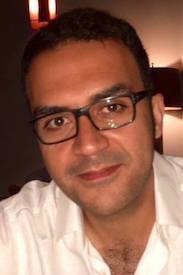
Roozbeh Safshekan
PhD Candidate, Political Science
Title of Dissertation: The Politics of Cyberspace in Iran: State-society and International Relations
in the Information Age.
—
Cyberspace is a domain accommodating an unprecedented level of human activity and social relations, with significant implications for domestic politics and international relations. Despite the growing significance of cyberspace as a domain of power in global politics, it has received relatively little attention in the scholarly literature, especially when it comes to the policies that states are adopting to manage it. These relatively new cyber-policies are likely to shape and reshape both domestic politics and international relations in the years to come. The Islamic Republic of Iran (IRI) provides a strong case study for understanding this dynamic, having experienced the full spectrum of opportunities and risks associated with the exercise of power in cyberspace. Using the IRI as a case study, my doctoral project asks: what measures has the IRI adopted to manage the risks and opportunities of cyberspace as an emerging domain of power, and how have these measures interacted with Iranian state-society and international relations?

Mehdi Rezania
MA Student, Music
Title of MA Thesis: The impact of Iran’s post-revolutionary cultural policies on Persian classical music composition.
—
The Iranian revolution in 1979 dramatically restructured the customary performance settings for Persian classical music, creating a challenging environment for both performers and audiences. Both the performance and dissemination of music were heavily restricted; grants for artists were eliminated; and classical performers found it very difficult to gain permits for concerts and the publication of albums. To survive in this extreme situation, musicians found themselves significantly dependent on public opinion and feedback as the source of their primary income. The necessity of satisfying an audience, limited the ability of composers to experiment with avant-garde music. Instead, there was a tendency to insert elements of forbidden popular and dance musics within classical music in order to generate higher sales, including the incorporation of dance themes and rhythms, and an increase in the use of drums. The objective of my master’s research is to understand the scope and significance of musical change in relation to post-revolutionary cultural policy.

Samira Torabi
MA Student, Anthropology
Title of MA Thesis: Women Creating New Spaces: Reconfiguring Gender Segregation in Iran.
—
Iranian women became the first target of both top-down modernization project in Pahlavi’s era and Islamization project of post-revolution Islamic Republic of Iran. Since then Islam, Muslim women, and gendered spaces and policies became the center of some scholarly focus. The ways in which women define and use gender segregated spaces in their everyday life has been addressed by numerous scholars. The dominant scholarly narratives of gender segregation are: 1) It is central to Islamic values. It has offered women some access to public sphere in certain contexts (as an alternative to women’s seclusion) and it has contributed to increasing the number of educated women 2) A discriminatory policy or practice that authorities use it as a tool to exercise power and have control over women and it halts their participation in their full social/economic potentials. My proposed MA research examines an important side of gender segregation that scholars have overlooked: the creative use of women-only spaces by Iranian women on both sides of the secularist-Islamist divide in making new virtual and physical spaces to address their social/religious/financial means.
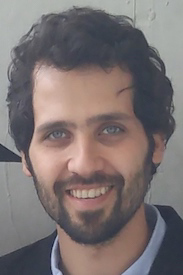
Hossein Hosseiniparvar
MA Student, Music
Title of MA Thesis: “Silence” in Ritual, Mystical and Musical Practice in the Middle East and Central Asia.
—
This project examines the concept of “silence” as a musical and cultural component, behaviour, and approach manifested in the Islamic tradition/practice in the Middle East and Central Asia. It also seeks to demonstrate a connection between this religious/ritual concept and the contemporary Western art-music. It shows technological instantiations of ”silence” in the musical and mystical expression. This research is an attempt to builds a bridge between the Islamic/Eastern and Western traditions.
Warm Congratulations to the Recipients of the State of Kuwait Islamic Studies Graduate Award in 2016
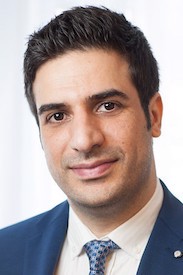
Navid Pourmokhtari
PhD Candidate, Political Science
Title of Dissertation: The Green Movement in Context: A History of Popular Resistance, Social Mobilization and Political Contestation in Post-revolutionary Iran
—
My doctoral dissertation examines the 2009 Iranian Green Movement from a Foucauldian perspective. The Green Movement represents the first instance in the new millennium of a mass mobilization in the Middle East, preceding the 2011 ‘Arab Spring’ by two years. Examining this phenomenon will thus contribute to a theoretical understanding of social movements, democratization and politics in the Middle East. This will require, first and foremost, undertaking case studies of social mobilization and political contestation during the post-revolutionary period leading up to the Green Movement. Only then will I be in a position to determine whether the Green Movement represents a paradigm shift in the aspirations and demands of dissenting groups in Iran and throughout the Middle East.
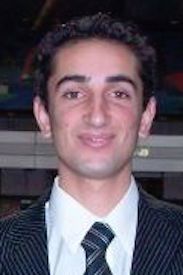
Houssem Ben Lazreq
PhD Student, Modern Languages and Cultural Studies
Title of Dissertation: The Jasmine Revolution: Translating Voices of Dissent
—
Over the first few months of 2016, Tunisia celebrated and commemorated the fifth anniversary of a wave of discontent that toppled an oppressive regime and sparked off further uprisings around the Arab world. This revolutionary spirit in Tunisia and other Arab countries has manifested itself in a huge production and proliferation of cultural materials such as chants, banners, slogans, jokes, poems, street art, blogs, presidential speeches and media coverage. Although Tunisia was the cradle of this series of revolutions, very few studies have explored the linguistic aspect of the Tunisian revolution such as the inter-lingual mediation that was done by translators, artists, writers, journalists and bloggers in order to voice dissent against the repressive regime. In my thesis, I will examine first what has been translated in terms of cultural and political productions such as literature, blogs, humour, slogans, songs, and presidential speeches. Then, I will discuss how the Tunisian revolution was represented in the Francophone world trough the translation of articles by the French journal Le Courrier International.

Nataliia Pestereva
PhD Student, English and Film Studies
Title of Dissertation: Theory of Russian Imperialism and the Case of the North Caucasus
—
My project examines the history of Russian involvement in the Caucasus region and the Russo-Caucasian colonial relationship from three distinct perspectives. The first is through the lens of classical Orientalism. I read the Caucasus as “Russia’s Orient,” examining the ways in which Russian writing about the Caucasus traded in stereotypes that exoticized and eroticized the Muslim peoples in the region. The second stage of my project examines anti-colonial efforts of Caucasian self-representation and assembles an archive of texts and films that record Caucasian experience of Russian imperialism. The third perspective is geopolitical, as I work to “globalize” the Russo-Caucasian relationship by asking what happens when recent events are mediated by the War on Terror. My dissertation seeks to investigate the dynamics of imperial, colonial, and postcolonial relations between Russia and the North Caucasus in order to question center-periphery model of postcolonial theory and develop understanding of the cultures that emerge out of these complex relationships.
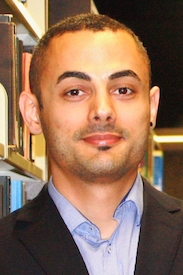
Aryan (Ahmad) Karimi
PhD Student, Sociology
Title of Dissertation: Iranian gays’ transnational identity: Life in Tehran and transitions as asylum seekers in Turkey and Canada
—
My research aims to contribute to LGBT-community’s rights by investigating experiences of the Iranian gay community as they move from Iran to Turkey and then to Canada. This project negotiates contemporary discourses of sexuality as refugees and immigrants. It also contributes to the field of queer migration, an academic approach to activism at intersection of queer rights, immigration rights, and social justice.
Warm Congratulations to the Recipients of the State of Kuwait Islamic Studies Graduate Award in 2015
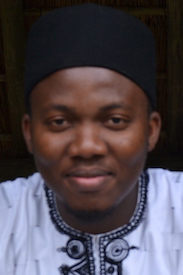
Abdulkadir, Abubakar
Ph.D. Student, History and Classics
Title of Dissertation: Versification of the World: The Case for Mauritania, Land of Million Poets
—
The project is an historical investigation into the West African tradition of Arabic poetry with a specific focus on Mauritania, known as balad milyūn shāʿir (land of million poets). It examines the emergence of this uniquely robust and influential poetic tradition, which seems to have emerged in the 18th century and marked a paradigm shift in literary and intellectual production – from prose genres to the poetic ones that have characterized Islamic scholarship and the shaping of religious/socio-political attitudes in the region over the past three centuries. The study focuses on the influence and legacy of three 18th century Mauritanian scholars: Sīdī ‘Abd Allāh b. Muḥammad b. ʿAbd Allāh al- ʿAlawī (1644 – d. 1731), known as Ibn Rāzikah, Muḥammad b. Mukhtār b. Muḥammad al-Yadālī al-Daymānī (1680 – d. 1750) and Bū Famayn al-Majlisī (d. unknown) who are regarded as pioneers of this tradition
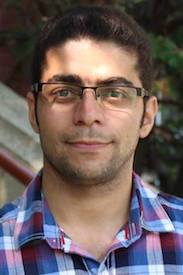
Aliakbari, Rasoul
Ph.D. Candidate, Modern Languages and Cultural Studies
Title of Dissertation: The Thousand and One Nights and the Formation of Modern Nation-states: A Trans-national Study
—
This doctoral dissertation concerns a critical study of print and cinematic cultures of The Thousand and One Nights and their various utilizations in nation-building enterprises across English, Arabic, and Farsi contexts.

 Khadem, Amir
Khadem, Amir
PhD Candidate, Modern Languages and Cultural Studies
Title of Dissertation: Endemic Pains and Pandemic Traumas: On the Literary Construction of Collective Memories
—
This project investigates the role of literary representations in traumatic memories at the social level, specifically focusing on three contemporary cases of post-revolutionary Iran, contemporary Palestine, and the post-9/11 United States. While the prime theoretical focus is on memory and trauma theory, all of my major case studies are deeply embedded in a Muslim cultural and political context. Focusing on works of contemporary literature in various genres to assess the significance of literary depiction of memory in the aftermath of social injuries, this study offers a comprehensive analysis of the memory struggles in the context of the Islamic world. Through this project, I anticipate to engage in the current dialogue on the problems of contemporary Muslim identity on a global scale.
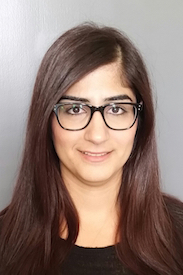
Georgis, Mariam
Ph.D. Candidate, Political Science
Title of Dissertation: Postwar Iraq (2003-2014): A Postcolonial Grassroots Approach to the Crisis of Democratic Nation Building
—
This dissertation will aim to identify the prospects for democratization in contemporary Iraq with special attention to Iraqi civil society. In the context of this research, Iraqis will discern the meaning of democracy in order to provide a more representative and inclusive model for democratic nation building in the Iraqi context. Since 2003, there have been periods of intense sectarian violence, the most recent of which began in June 2014 with the rise of the Islamic State. This research project aims to essentially examine what went wrong in post-2003 Iraq and more importantly, the potential of Iraqis to rebuild their country on pluralist, tolerant, and democratic values.

Meissner, Marcus
MA Student, History and Classics
Title of MA Research Project: From the Edge of (the Ottoman) Empire: revisiting Rifa’at ‘Ali Abou AI-Haj and Formation of the Modern State
—
This research project focuses on the administration of border provinces in the early modern Ottoman Empire. I will be attempting to demonstrate that the trope of Ottoman “decline” after the death of Suleiman the Magnificent in 1566 is inaccurate at best. The dynamism of Ottoman administrative policy is best revealed in the management of its borders. It is in the borderlands that Ottoman administrators had to be at their most creative and skilful. With peripheral regions located at times in Algeria, Hungary, the Crimea and the Hejaz, the makeup of the Ottoman Empire was thus extremely diverse. Administrative approaches to religion, culture and ethnicity will all be discussed. Building off of the work of Dr. Rifa’at Abou-El-Haj, I hope to provide an accurate picture of Ottoman administrative acumen by using early modern Ottoman borderlands as case studies.
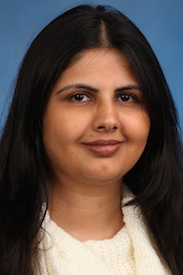
Shumaila Hemani
PhD Student, Music
Title of Dissertation: Islamic Modernities: Singing the Poetry of Sufi Saint Shah Abdul Latif Bhitai Across the Borders of Pakistan and India
—
This research based on ethnographic field-work as well as critical reading of historical and media sources will analyze the significance of the 18th century Sufi saint Shah Abdul Latif Bhitai’s poetry from Sind, Pakistan in different peripatetic as well as educated communities of believers and literati in Sind, Pakistan and parts of India, and show how the processes of modernity, namely colonialism combined with anti-colonial nationalism during the Raj and post-colonial nationalism after the birth of Pakistan has shifted the place of this saint to be the national and classical poet of Sindhi in the urban spheres, and examine its impact on the ritualistic singing by the faqirs (dervish) at the shrine of Shah Latif and beyond.

 Nakita Valerio
Nakita Valerio
MA Student, Religious Studies
Title of MA Research Project: Remembering Al-Yehud Through the Shoah: Pedagogical Approaches to Teaching the Holocaust and Jewishness Among Contemporary Moroccan Muslims
—
The Holocaust is a provocative measure of the Muslim memory of Jews. Though it is considered the starting point in Critical Memory studies, there is yet to be much scholarship devoted to its memory in the Islamic world. An intimate history of relatively peaceful coexistence between Moroccan Jews and Muslims has been challenged in a comparatively short time by narratives of nationalism and diaspora, the Israeli occupation of Palestine, their economic-trade policy, the rhetoric regarding normalization of Israel, and educational protocols surrounding the constructed memory of Jews in Morocco. My working research questions are as follows: How is the Holocaust remembered by self-identified Moroccan Muslims? How is this affected by education, politics and self-prescribed ideas about the “Islamic and Jewish religions”? How does this affect overall remembering of Jews in Morocco? These questions are situated in the context of Memory literature and are used to understand how societies reconcile multi-layered cognitive dissonance


